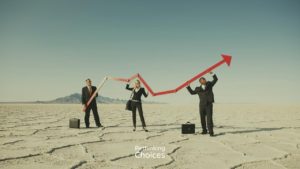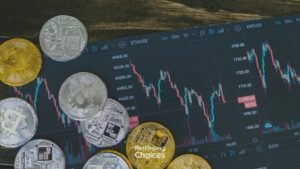
This is a picture I took last week near Calais. It is a picture of an oil refinery with the methane flaring away. We were on our way back after clearing my father-in-law’s house after his passing. It was a difficult week. At least we made progress.
Can’t say the same for climate change. The COP conferences are intended to mark progress.
We are now halfway between COP26 and COP27. If anything, we are further away today from fixing climate change than we were in November when Mr Johnson set the tone of expectations by flying out of Glasgow in a private jet to make dinner with a friend.
Hope is eternal. Last week, we spoke with Sam Baker. He is the leader of Walk2COP27. This is a continuation of the journey he physically did last year to Glasgow. It attracted many people concerned about progress on climate change. This year, he is bringing even more people along, visiting 12 cities from Glasgow to Sharm el-Sheikh. If you are in Glasgow (22/09), London (26/09), Paris (29/09), Brussels (03/10), Frankfurt (06/10), Vienna (10/10), Budapest (13/10), Sofia (20/10), Ankara (24/10), Beirut (27/10), Amman (31/10), Sharm el-Sheikh (07/11), join them. You can do so online too.
We can make joining them mean we are taking control of the climate situation ourselves.
This month, we saw how Big Oil is now dominated by shareholders who are not interested in reducing emissions. Shell’s AGM was one example, highlighted by Follow This’ Mark van Baal, Chevron’s shareholders voted similarly against emissions cuts proposals. Climate conscientious investors have now so successfully divested themselves from Big Oil that their say is now replaced by those more interested in the money.
This is distressing, but who do we turn to in this time of crisis? Traditionally, we would say governments need to do something. However, President Biden is visiting Saudi Arabia, and he will not be visiting to call for reductions in oil or gas production. In fact, OPEC+’s reluctance to expand production faster may reflect their own concerns over climate change. Riyadh is on track to becoming too hot and too dry to live.
No. Rich governments are looking after their own electoral prospects. The UK government just allowed oil drilling to start in Surrey – a leafy semi-rural area near London that has some of the country’s most beautiful landscapes.
The claim is that oil produced from the UK will reduce the need to transport oil from abroad. This does nothing to stop the oil produced from abroad to be used. This type of reasoning is the kind of rationalisation we talk about in our book, The Unsustainable Truth.
It doesn’t matter if oil is transported or not, it is the use that is the problem. As Mike Berners-Lee pointed out in There is no Planet B, if it is produced, it will be used.
In fact, the chances are the oil from abroad will still be transported and used in the UK. Drilling here simply means more oil will be available.
So as we stand halfway between COP26 and COP27, oil, gas, and coal production are increasing this year as it did last year. Who should we be looking?
The worst outcome of COP26 is it made people feel they are impotent. It made us feel there is nothing we can do. As Rethinking Choices, we advise businesses and communities that this is not the case. We need to understand the real risks of climate change. Unchecked climate change will bankrupt us way before our coastlines are lost. There may be no place to hide, but we still need to take control of our own destinies. Most of all, this means we need to take control of all oil, gas, and coal production.
Our Transformational Ownership proposal is a public takeover of all oil, gas, and coal companies, funded by businesses paying a fee to maintain the planet. This means we simply buy out those owners who are more interested in financial gains. It is surprisingly cheap to do that. It costs less than 1% of what net-zero will cost and is the only thing to guarantee net-zero will be possible. This is the only proposal that explicitly puts oil, gas, and coal production under independent guidance by climate science.
If we want to be closer to our final destination, we have to take control of the journey ourselves. No one, except us, can do that.



